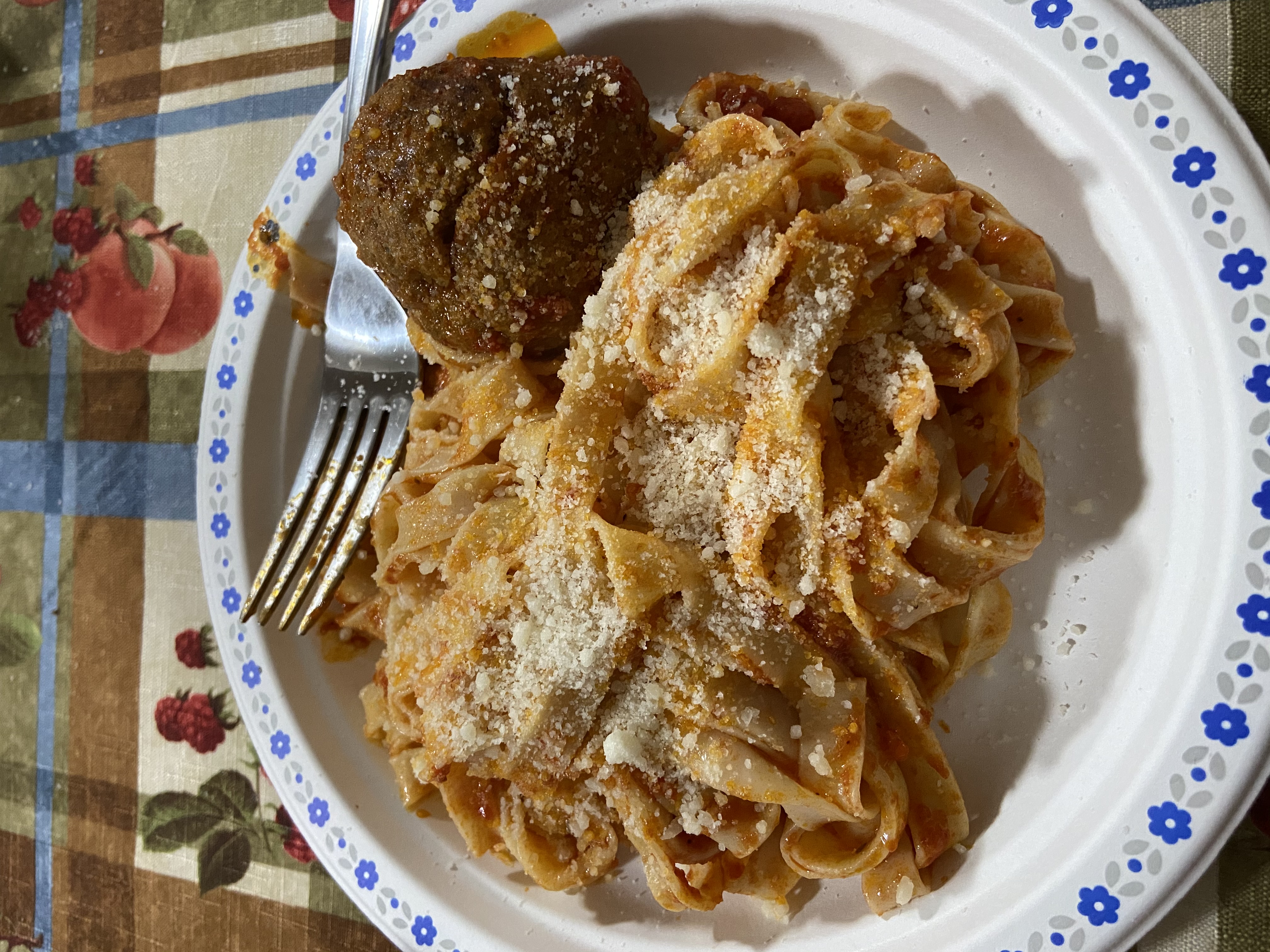As a family of five with three boys, it wasn’t uncommon to go through three or four one-litre (0.9-quart) jars per week, my mom Luisa has told me on multiple occasions.
For the last four years, my wife Lauren and I have started to get involved in the tradition to ensure we’ve got enough sauce to feed our two growing boys.
This time around I decided to document the days and steps that help support Ontario agriculture and feed our family.
I left my house in Hamilton around 6:30 on the morning of Aug. 13 to make the almost hour-long drive to Pohoresky Farms in Waterford. I arrived just before 8:00.
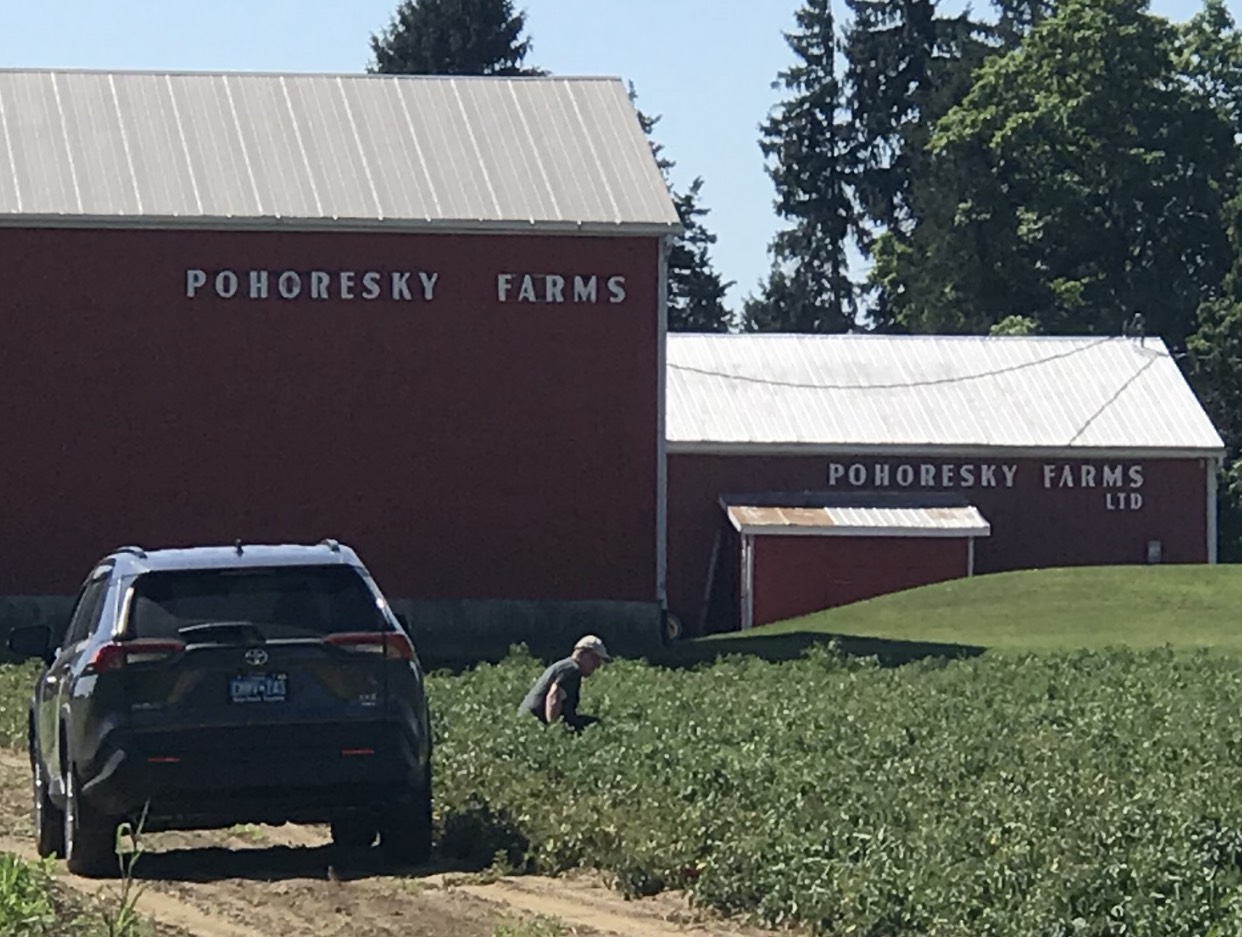
Maurice Pohoresky’s farm has rows of tomatoes, eggplants, peppers and other vegetables. There’s even a trailer of onions attached to a Massey Ferguson 255 tractor available for picking.
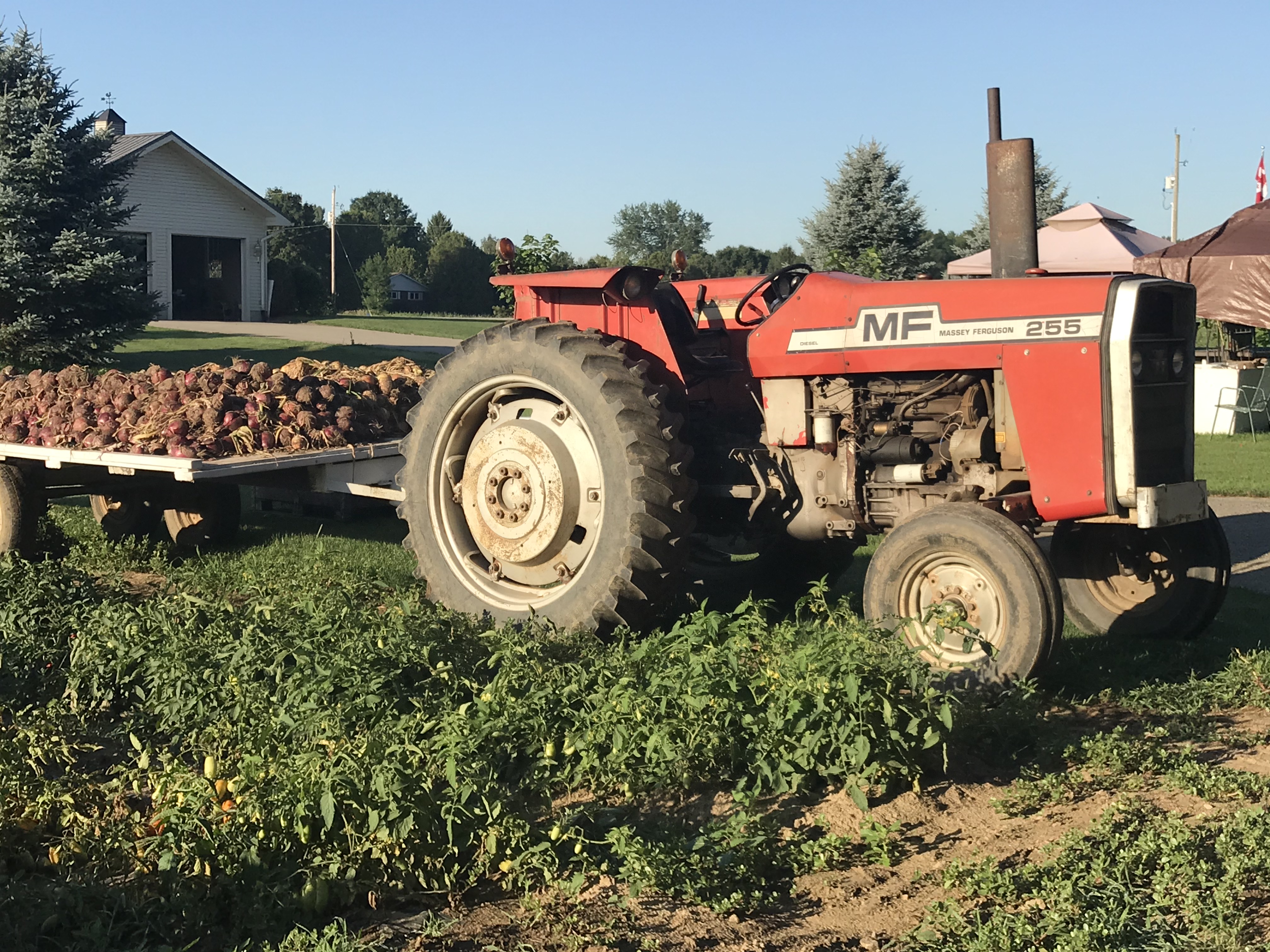
Mr. Pohoresky doesn’t have time to chat because he’s on his ATV escorting customers to the part of the farm they’re looking for.
The plan for the morning is to pick 10 bushels of tomatoes, one bushel of onions and one bushel of eggplants.
So, each with a bushel in hand, my mom, my father Albino and I find a spot within the rows to start picking San Marzano tomatoes.
Why those?
“They’re softer than Roma tomatoes and don’t have as much water as the big round ones,” my mom said.
Who am I to argue? My parents have been picking tomatoes since before I was born.
They both grew up on small family farms in 1950s Italy, in the city of Teramo within the Abruzzo region.
My mom’s parents had turkeys, pigs, chickens and fruit trees on their farm. My dad’s parents had olive trees, raised sheep and made their own wine. I was fortunate enough to go to Italy a few times as a kid to visit my grandparents and their farms.
Back on Porohresky Farms, the tomatoes we’re picking are just about perfect. They’re a deep red colour and have a nice firm skin.
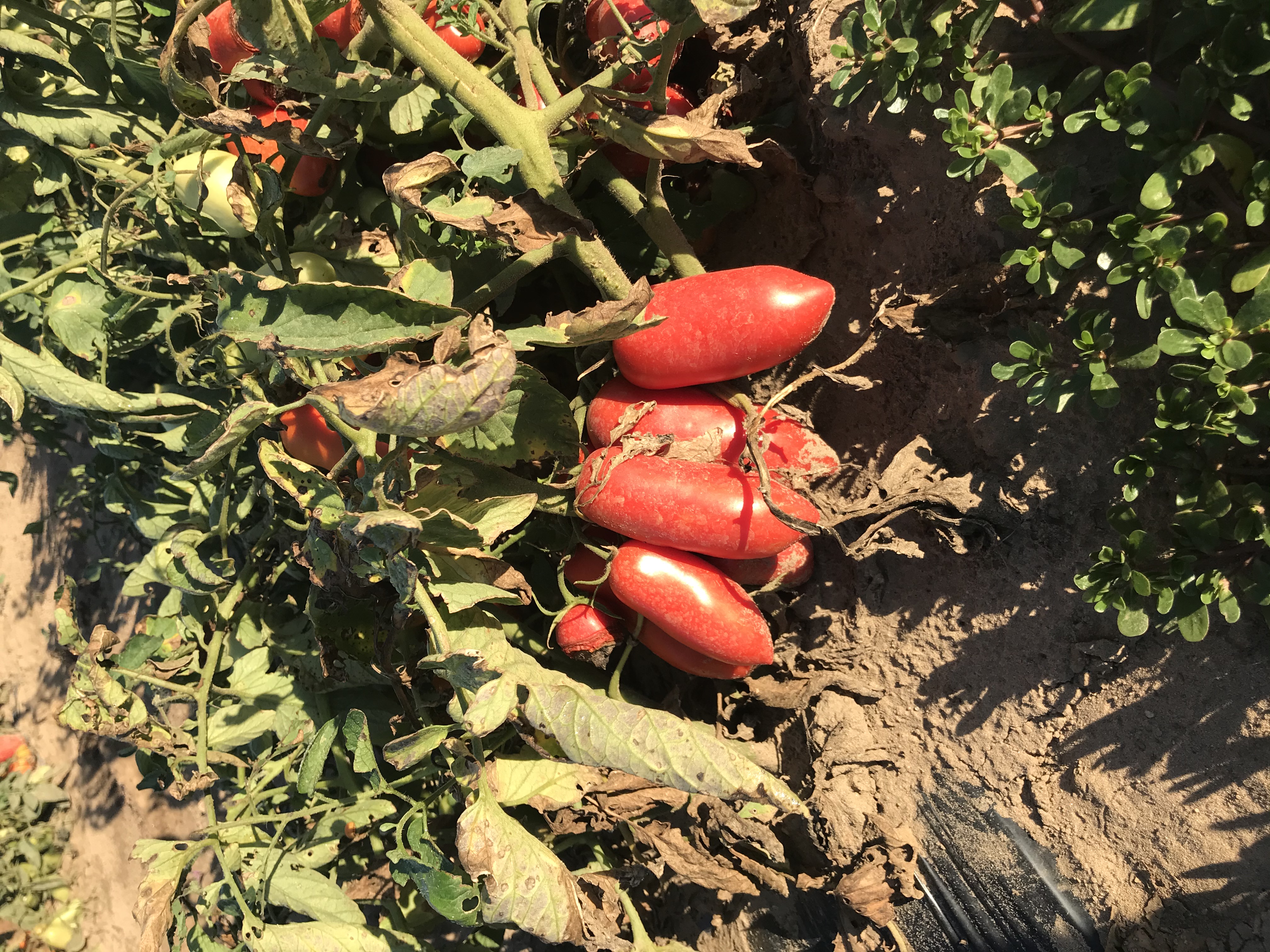
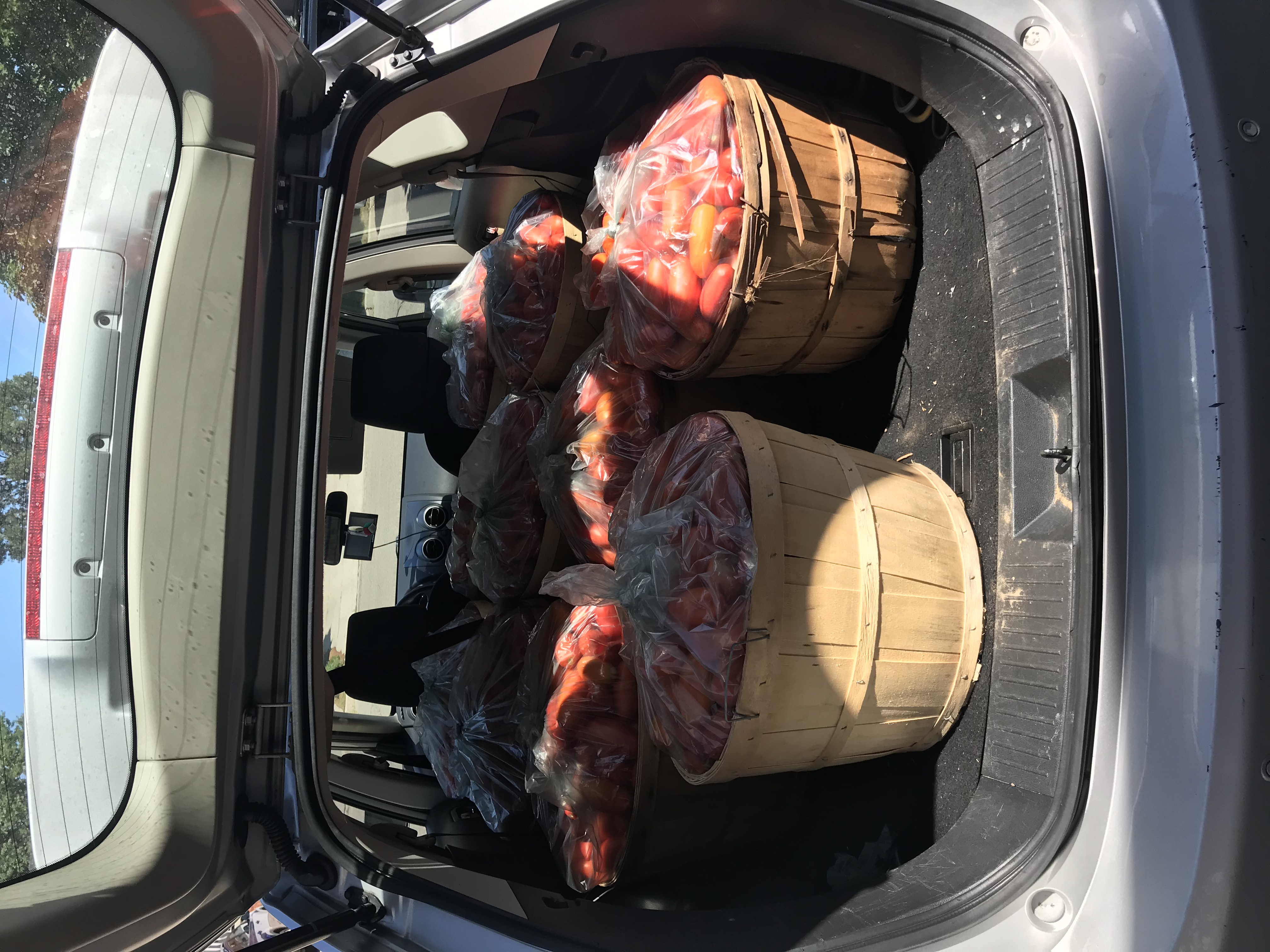
It takes us about three hours to pick everything we need. We drive back to my parents’ house and leave the tomatoes outdoors to give them a chance to finish ripening. Or at least that’s what my parents tell me.
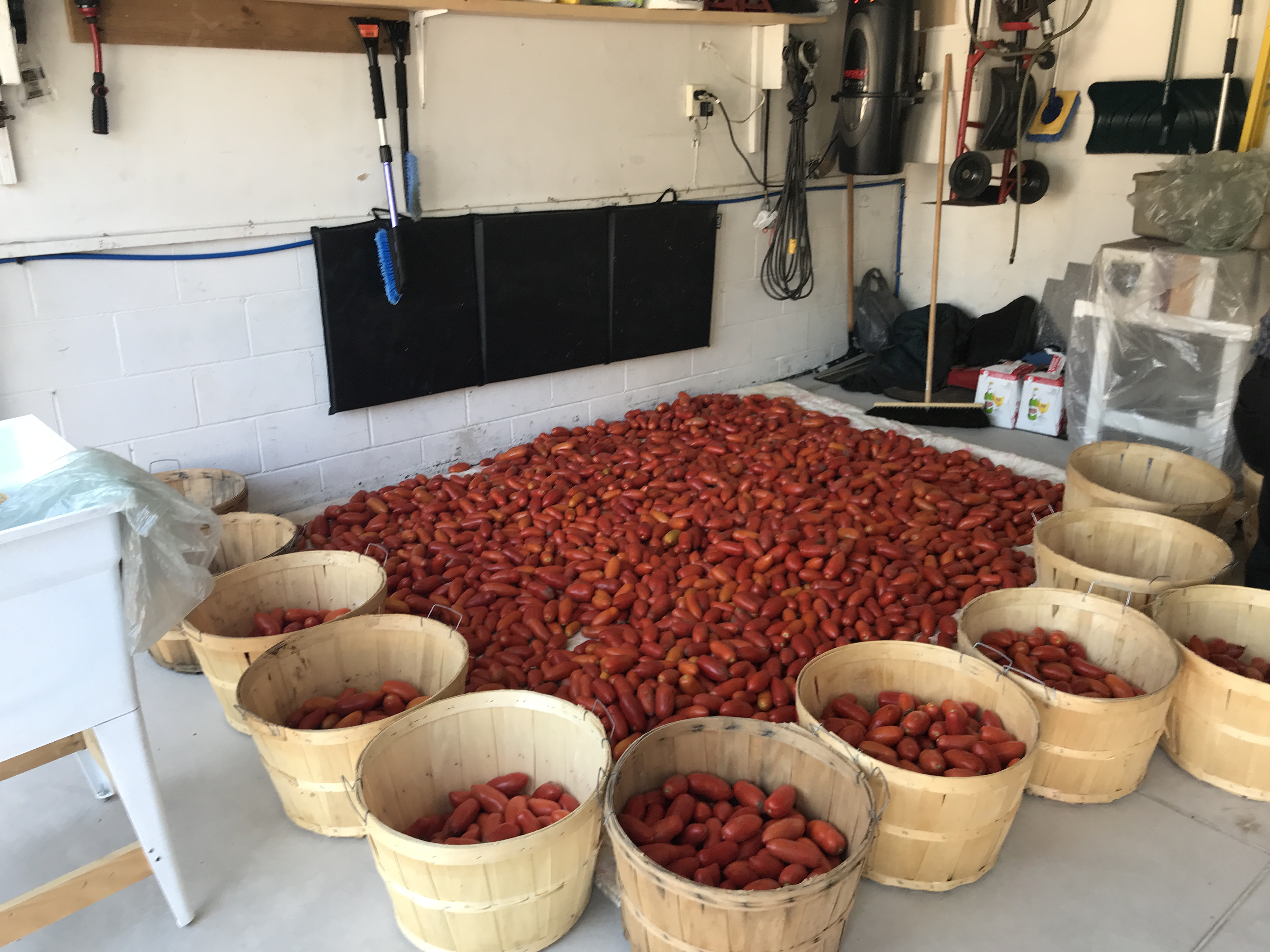
Sauce day was Aug. 22.
Our family arrives at my parents’ house before 8:30 that morning only to be told by my mom that we’re late.
The neighbours are loading up a pickup truck of supplies to go make their own sauce. Both families usually do the sauce-making together but, because of COVID-19, thought otherwise this year.
In the garage are two large pots on top of burners. Each pot has olive oil, carrots, onions, garlic, celery and other seasonings. We turn the burners on so the pot contents start to cook down.
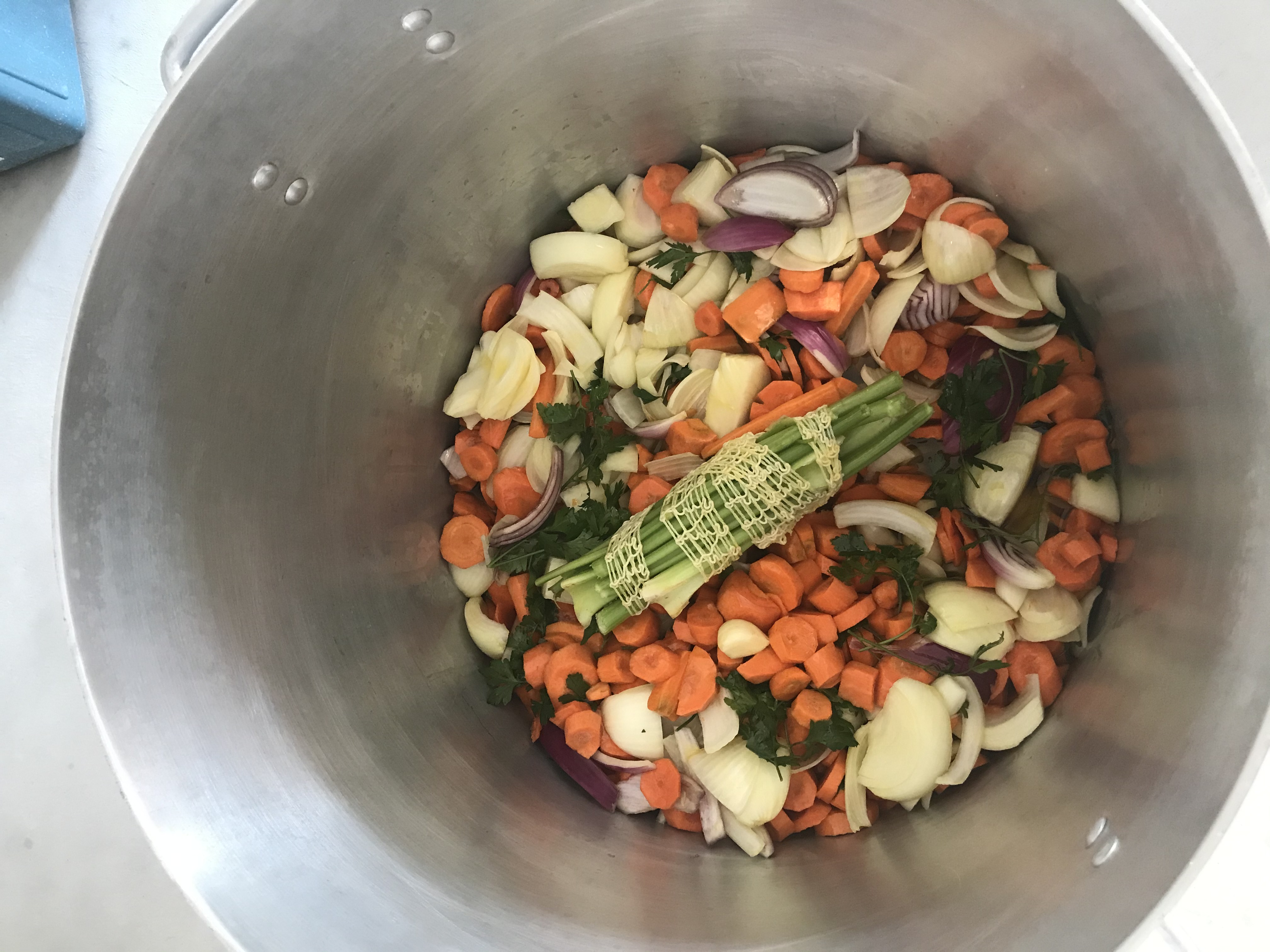
While that’s happening, each tomato is washed and cut by hand. We slice the ends off and cut the tomatoes lengthwise to make sure the insides aren’t rotten.
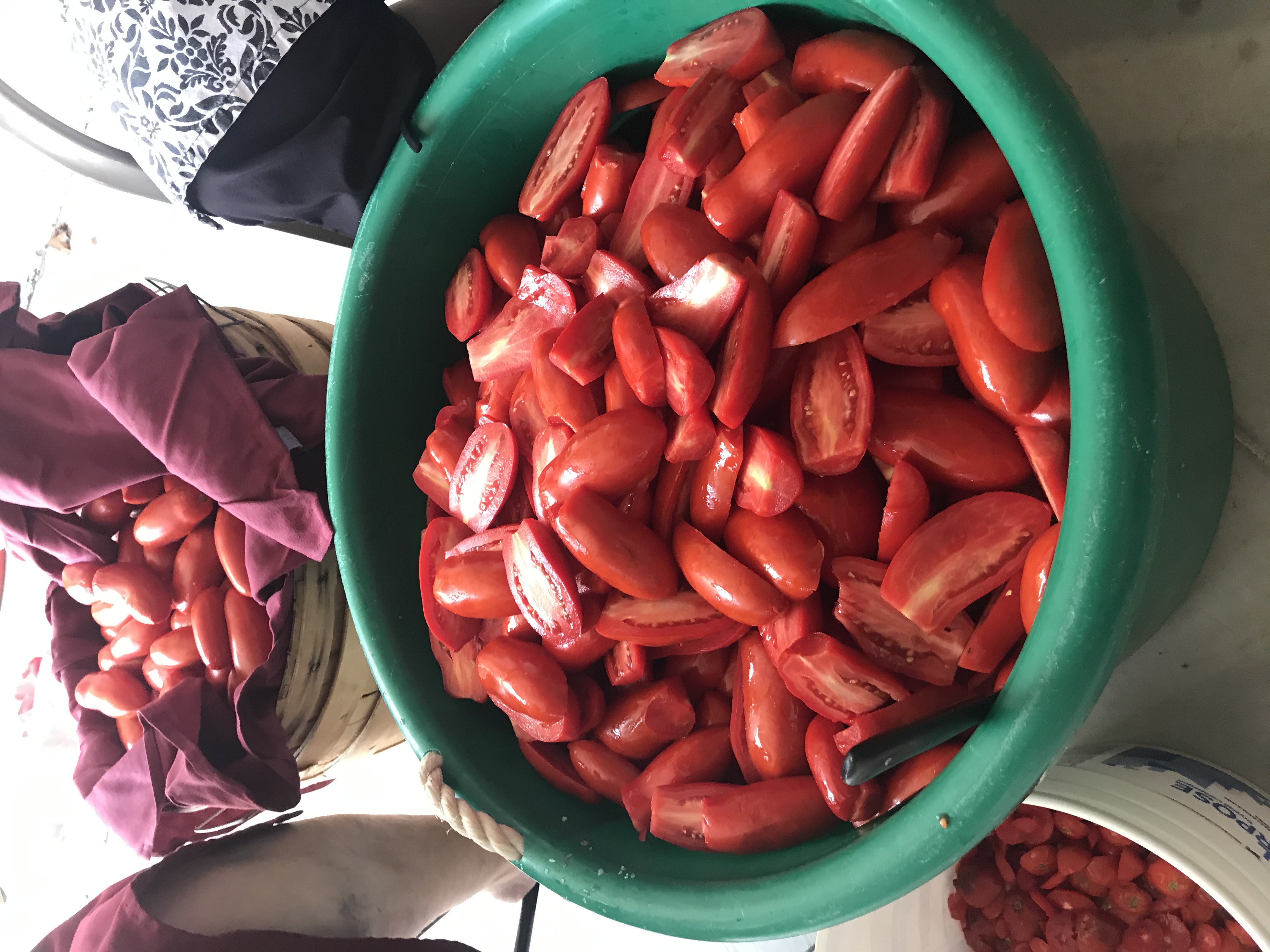
Once that’s finished, it’s time to process the tomatoes.
A washing machine motor powers the machine my father built and tweaked.
Tomatoes are loaded through the top and pass through a grinder that serves two purposes. It juices the tomatoes and pushes out the seeds and skins.
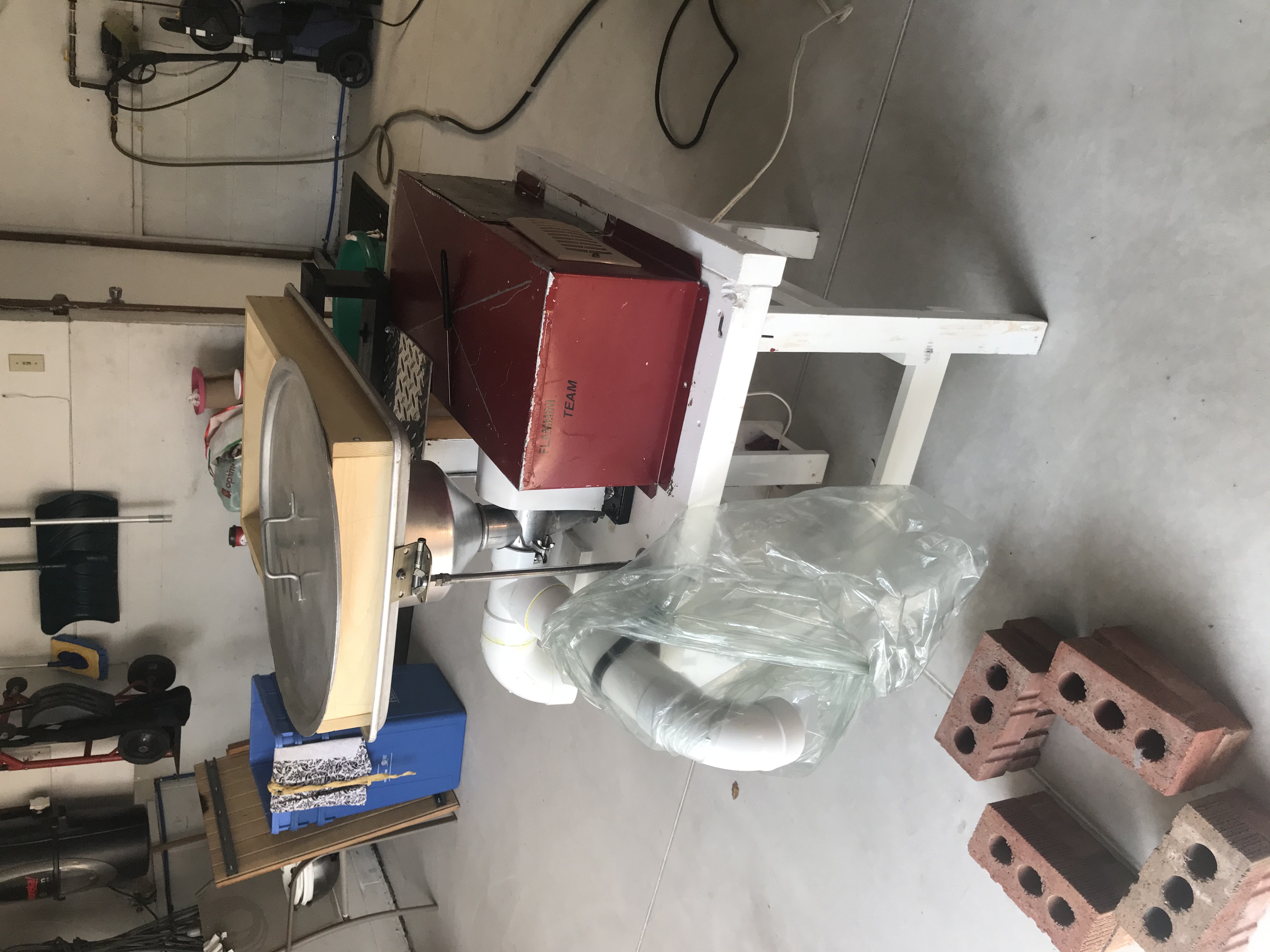
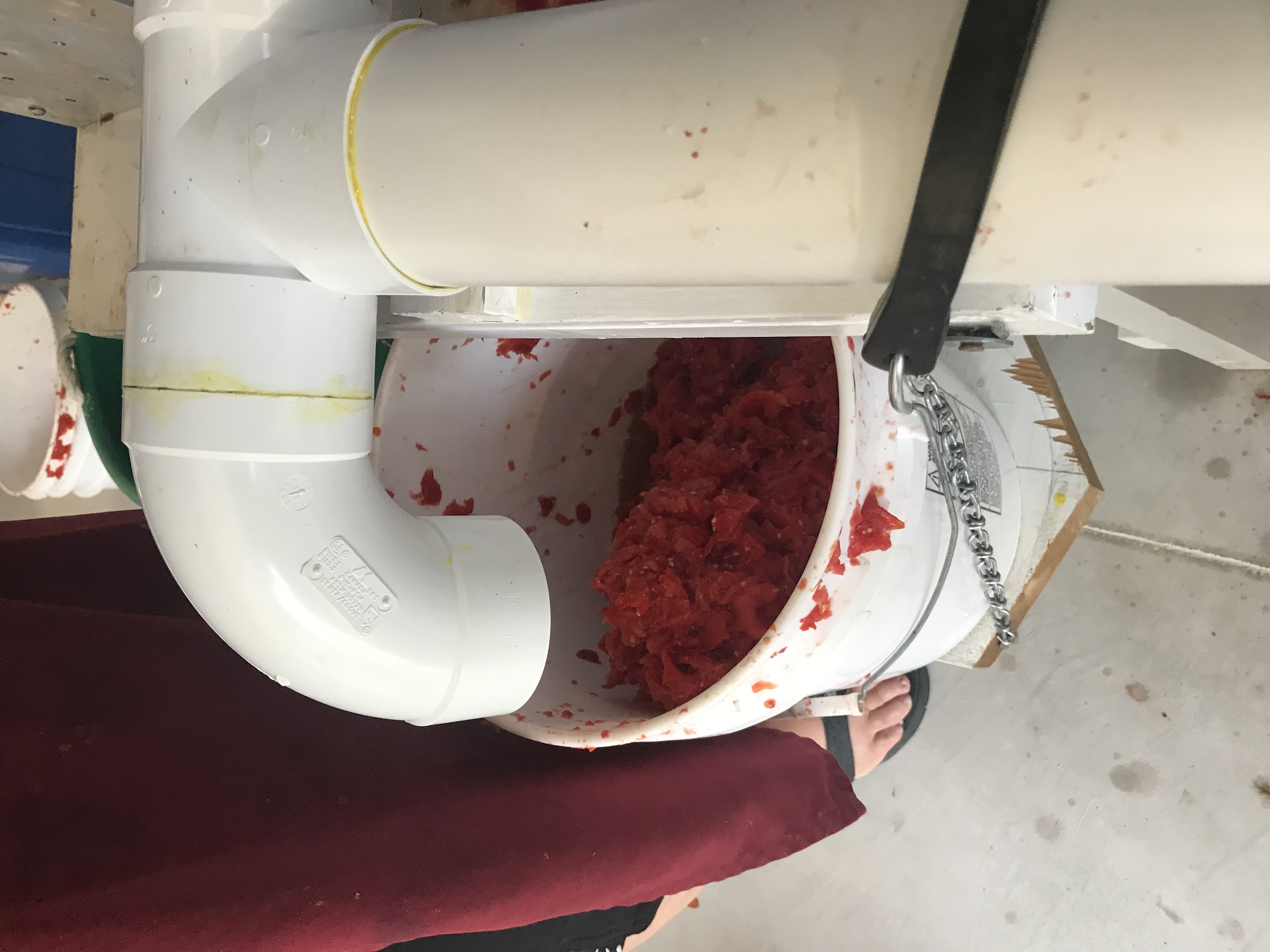
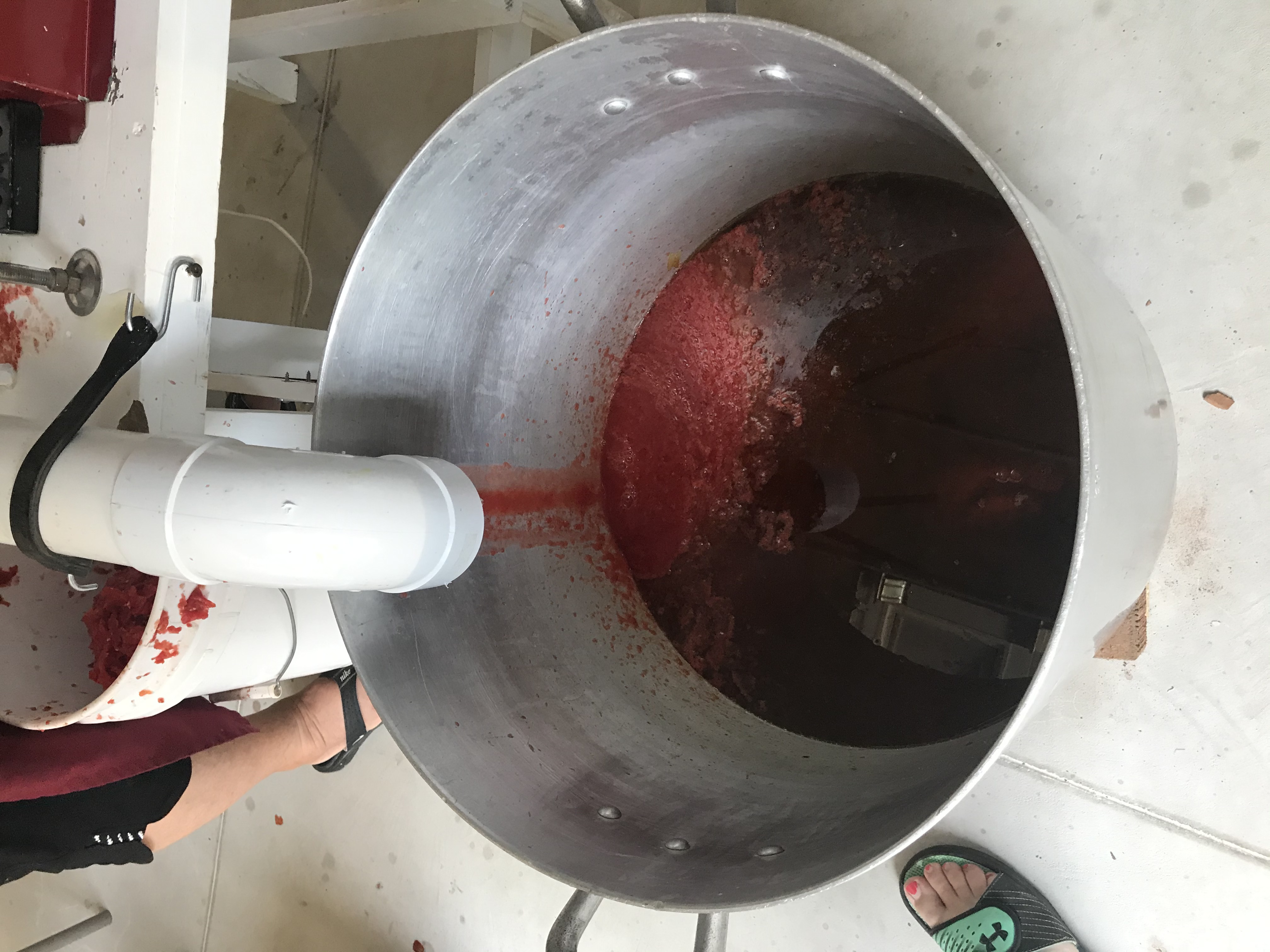
We run the tomatoes through the machine four times to make sure we’re getting the most juice out of them as we can.
Once all the tomatoes have been pushed through the machine, we transfer the juice to the larger pots and let everything come to a boil. The leftover skin and seeds are either disposed of or my dad works them into the soil in his backyard garden.
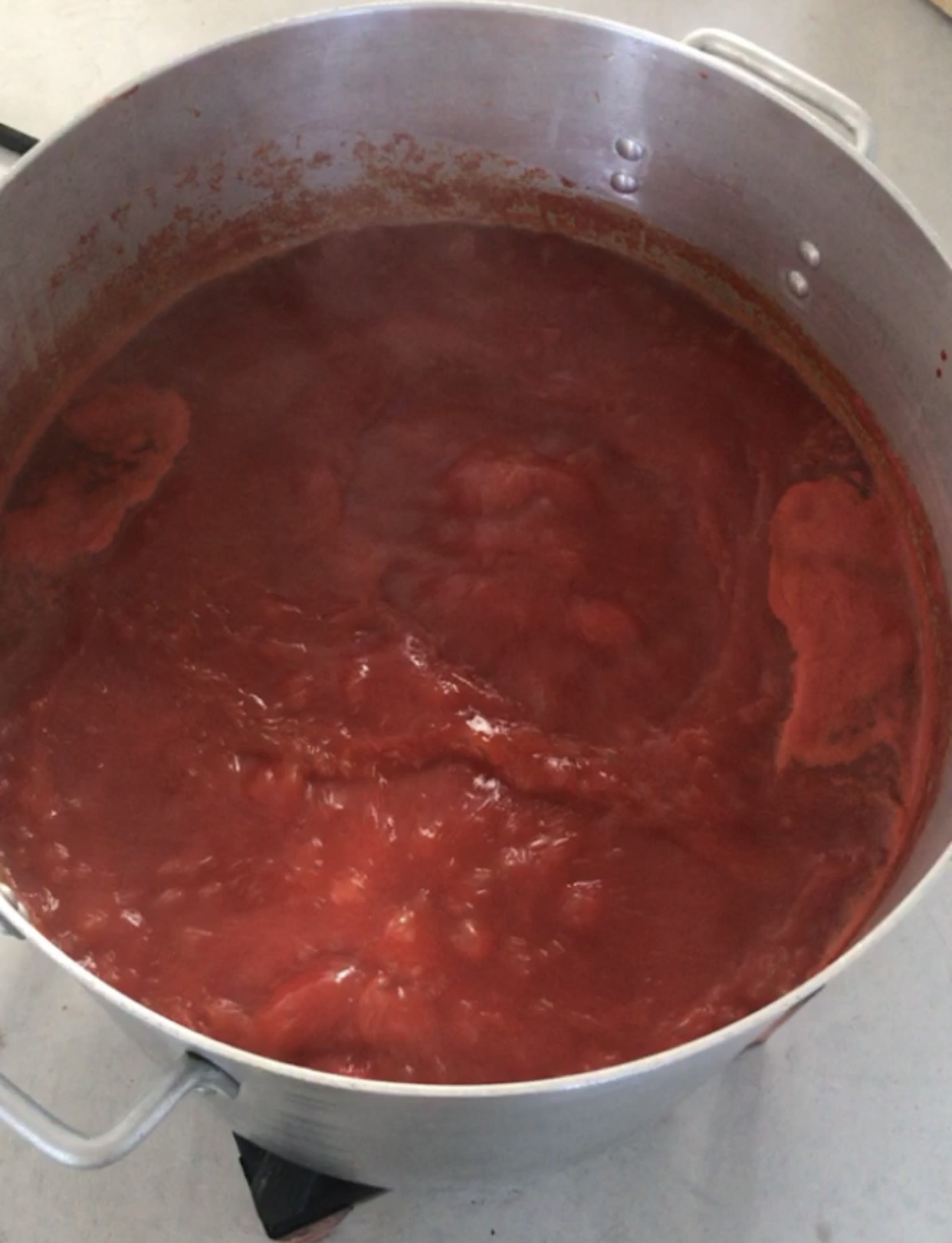
It can take anywhere between two or three hours before the sauce is ready to be jarred. But the end result is cooked, seasoned, homemade and ready-to-use tomato sauce.
Before preserving the sauce, glass jars are loaded into an oven. We heat the jars at around 200 F (93 C) for about 10 minutes. This step helps ensure the jars don’t break when we pour the boiling sauce in them, and helps with the sealing process.
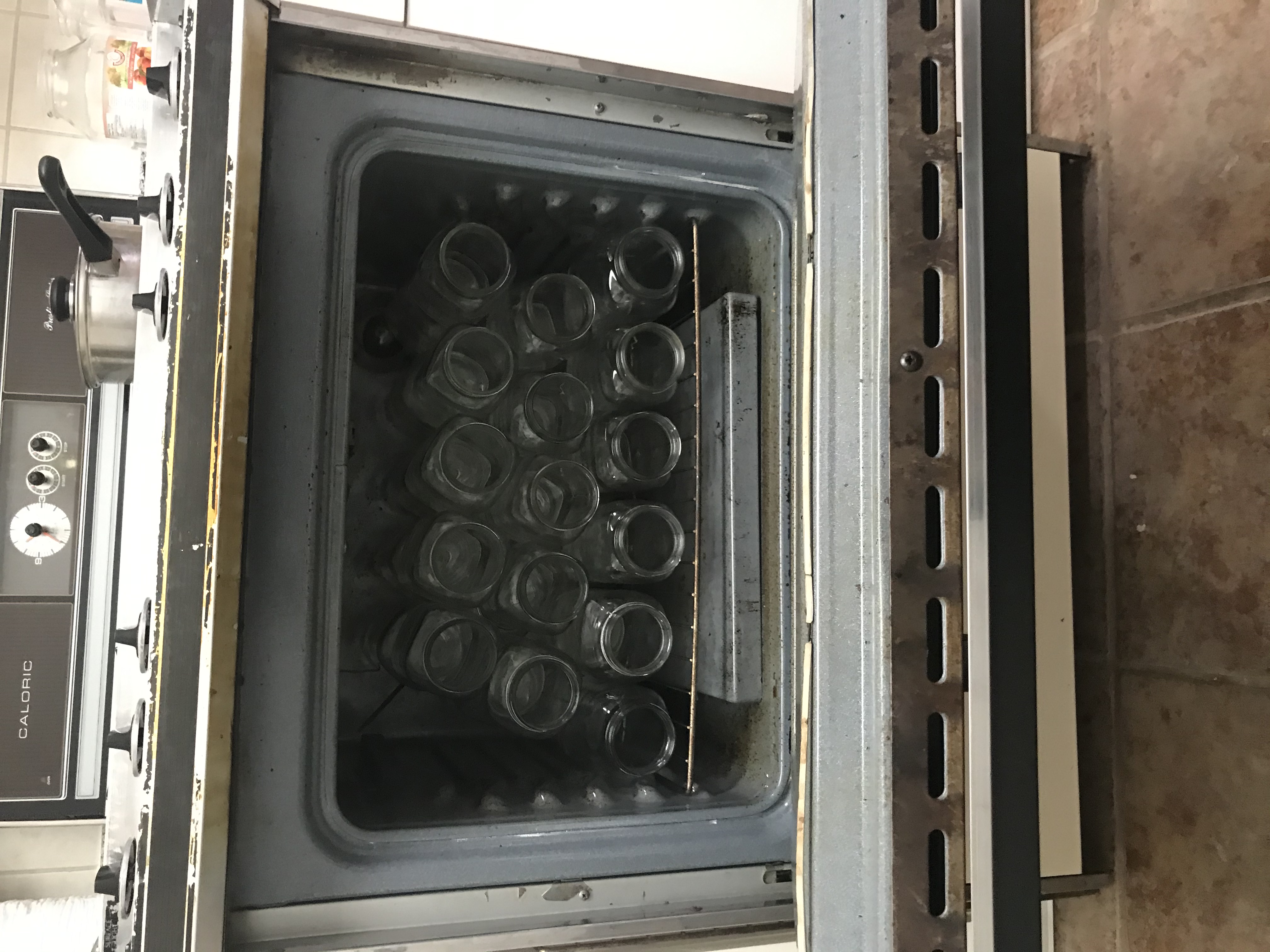
A few basil leaves are dropped at the bottom of each jar before it is filled with sauce. The jars are closed, placed into a bushel, covered and left to cool down and seal for a day or two before we bring them home.
We filled our last jar at around 4:30 that afternoon and ended the day with a meal of homemade pasta and homemade meatballs with the day’s sauce.
